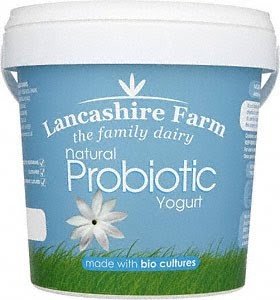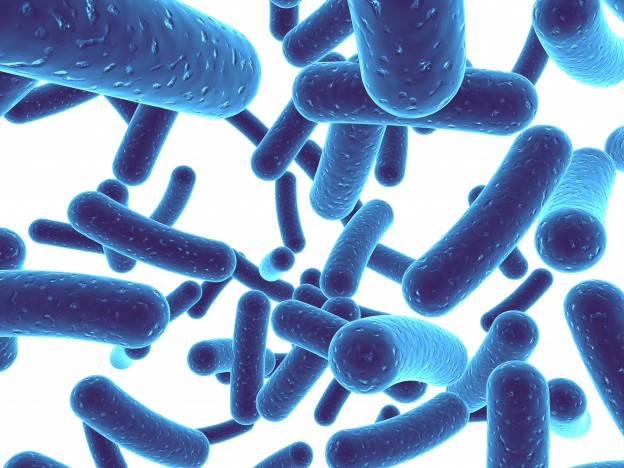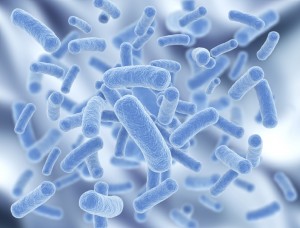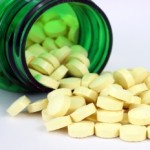By Anthoney J. Andersen – Steroidal.com
In the last decade or so, it appears that one of the secrets behind staying active and healthy as we age is through the help of supplementation.
Whether it’s over-the-counter vitamins and minerals, or a sports supplement of some kind (weight loss pill, protein powders, etc.), it seems as though supplements have begun to surge as a way to achieve the body that we so desire.
One way to maintain a healthy lifestyle (and quite possibly the most important) is through diet and nutrition. In order for your body to stay healthy – and soak up all the nutrients from the foods you eat – your digestive system needs to be functioning properly.
One supplement that has garnered some attention in recent years for helping repair a person’s digestive tract is probiotics.
WHAT ARE PROBIOTICS?
According to WebMD, probiotics – which means ‘for life’ – are live bacteria and yeasts that are good for your health, especially your digestive system. The digestive system is designed to turn the foods we eat into nutrients, which the body uses for energy, growth and cell repair.
Probiotics are often referred to as ‘good’ or ‘helpful’ bacteria because they keep your gut healthy. Probiotics are naturally found in your body, but they can also be obtained from certain foods and supplements.
Probiotics are also said to help strengthen a person’s immune system, assist in weight loss and even protect against periodontal (gum) disease.
According to the University of California Berkley Wellness Center, researchers claim that probiotics help the body rebalance the normal micoflora (microorganisms like algae and fungi) in the large intestine (colon).
There are many different types of bacteria used for probiotics. Two of the most common forms are Lactobacillus and Bifidobacterium. They contain different physiological effects, which provide different health benefits (as well as possible risks).
The idea of ‘beneficial’ bacteria may be difficult to comprehend. We take antibiotics to ward off harmful bacterial infections and use antibacterial soaps more than ever. Just as the wrong bacteria can cause health problems, the right bacteria can contain health benefits.
Enter probiotics.
According to Medicinenet.com, promoting a healthy digestive tract and healthy immune system are the most commonly studied benefits at this time. Our bodies contain both good and helpful bacteria, as well as bad and harmful bacteria. The goal is to maintain a balance between the two for optimal health.
Probiotics can help our bodies absorb important vitamins and minerals including calcium, iron, chromium, and vitamins D, A, E and K.
Age, genetics and diet may influence the composition of the bacteria in the body. An imbalance between the bacteria is referred to as dysbiosis, and may be linked to certain health ailments of the intestinal tract like ulcerative colitis (inflammation of the large intestine), irritable bowel syndrome (IBS), celiac disease and Crohn’s disease.
HOW TO OBTAIN PROBIOTICS
Probiotics can be consumed through both foods and supplements (like pills and powders). According to the health and nutrition website – Dailyburn.com – researchers have not determined which delivery method of probiotics is the most effective.
“There is no science out there that I am aware of regarding which is a better delivery system: supplements or foods,” said Kristi King, RD, spokesperson for the Academy of Nutrition and Dietetics.
King warns people that probiotic supplements are not regulated by the Food and Drug Administration (FDA), meaning that what’s on the label, may not necessarily be what’s inside.
“Someone whose immunity is compromised should be especially cautious about taking a supplements that is not regulated by the FDA,” King said.
Here’s what researchers do know: Food has an almost immediate effect on your intestinal environment, which is composed of trillions of microbes.
“You can replenish your bacteria flora within three to four days,” said Gina Sam, MD, MPH, and Director of the Mount Sinai Gastrointestinal Motility Center at The Mount Sinai Hospital.
However, researchers are still perplexed about how often – and in what quantities – probiotics should be taken in order for your body to see the health benefits.
“It’s frustrating for me as a health care provider, because people want a solid answer, but the research just isn’t there quite yet,” King said.
According to Everydayhealth.com, if you’re looking to consume probiotics naturally, here are a few food suggestions that you might want to consider adding to your diet:
YOGURT
The American Gastrointestinal Association recommends yogurt for digestive health and to ease constipation, diarrhea and other intestinal problems.
 Yogurt is a healthy addition to the diet because it contains calcium, protein and active cultures (refers to the living organisms Lactobacillus Bulgaricus and Streptococcus Thermophilius),” said Lori Rosenthal, MS, RD, CDN, a registered dietician in the department of surgery at the Montefiore Medical Center in New York.
Yogurt is a healthy addition to the diet because it contains calcium, protein and active cultures (refers to the living organisms Lactobacillus Bulgaricus and Streptococcus Thermophilius),” said Lori Rosenthal, MS, RD, CDN, a registered dietician in the department of surgery at the Montefiore Medical Center in New York.
“But it’s not a major cure-all for GI disorders because it just doesn’t have enough cultures to fight serious problems,” Rosenthal said.
SOUR PICKLES
Salty pickle spears can also deliver the body with a hefty punch of probiotics. According to Dailyburn.com, it’s recommended that you seek out varieties of sour pickles that are brined in water and sea salt, rather than vinegar. This is because vinegar brine doesn’t allow the beneficial bacteria to grow.
SOURDOUGH BREAD
Sourdough bread contains the bacteria – Lactobacillus – in a higher proportion to yeasts, than other breads. More Lactobacillus means an increased production of lactic acid, which means a lower production of potentially dangerous phytic acid (principal storage form of phosphorous in many plant tissues). This means that there will be more mineral availability and easier digestion.
CONCLUSION
When it comes to maintaining proper health, diet is one of the most important elements to consider. In order for your body to absorb all the vital minerals and nutrients from the foods you eat, they have to be properly digested, and filtered through your body.
So, if you’re experiencing gastrointestinal distress, or just want to boost your immune system, any of these natural food sources can help.
“Not only do these probiotic-rich foods give us good bacteria, but most of the foods will give us other health benefits as well,” King said.
“It’s a win-win situation.”








